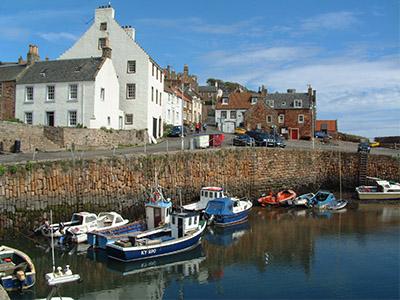Introduction
In this project, we seek to better understand processes of resilience and empowerment in rural communities across Scotland. The project will aim to provide recommendations to the Scottish Government for how best to support the resilience of rural communities in Scotland. Existing academic literature does not offer a singular definition of ‘community resilience’, and different stakeholders understand the term in diverse ways, according to situated, local dynamics. Within the Scottish Government, policies orientated towards resilience focus primarily on emergency response and disaster planning. However, there is also a movement towards a broader conceptualisation of resilience, one that recognises the role of community capacities, empowerment, and the ability to respond to ‘external’ pressures in fostering local resilience. This research will: develop criteria for applying the resilience concept through flexible and place-based approaches; explore how different stakeholders practise and understand resilience in rural communities; and seeks to understand the factors that foster resilience in rural communities.

Aim of Research
This research aims to examine how resilience in rural communities can be enhanced through processes of local empowerment and the role of wider networks and partnerships in facilitating the enhancement of resilience. It will also consider how stakeholders’ (including academics, policymakers, practitioners and communities) understandings of rural community resilience can be developed to create collaborative initiatives in the future.
Progress
2021 / 2022
In the final year of the Strategic Research Programme, work continued across WP 3.4 on understanding the impacts of Covid-19, bringing together researchers from across the Communities and Wellbeing work package. Findings from the initial research undertaken in 2020/21 were presented to stakeholders at a workshop on 21 June 2021, and follow-up interviews with a subset of stakeholders took place in February 2022 to understand the ongoing effects of the pandemic in rural and island Scotland, with findings published in a summary report (available here).
Researchers in RD 3.4.4 also produced recommendations for future replacement LEADER initiatives, such as Community Led Local Development (CLLD) grants, based on a review of evaluations of the LEADER Programme by Local Action Groups. In October 2021, two PhD students began research on issues relating to island migration, jointly supervised by members of the project team and staff in the Department of Geography, University of Aberdeen.
Highlights
Currie, M., Wilson, R., Noble, C. and Gurd, J. (2022) The ongoing impacts of Covid-19 in Scotland’s rural and island communities. Summary report, March 2022. This report presents findings on the impacts of the pandemic in rural and island areas of Scotland. It is based on follow-up interviews with rural and island stakeholders in February 2022, 18 months after the first round of interviews to understand the initial impacts.
Glass, J., Mc Morran, R., Currie, M., McKee, A., Annabel Pinker, Mark Reed, Elliot Meador, Marianna Markantoni (in press) “Translating community resilience theory into practice: a deliberative Delphi approach” Sociologia Ruralis. This paper discusses the usefulness of the Delphi approach in understanding community resilience in Scotland.
Currie, M., McKee, A., Markantoni, M., Glass, J., Pinker, A., McMorran, R., and Meador, E., (in press) “Understandings and applications of rural community resilience amongst Scottish stakeholders: introducing dual discourses” Journal of Community Development. This paper describes how resilience is understood and enacted in rural communities and introduces the ways in which Scottish stakeholders view resilience through an emergency or everyday lens.
2020 / 2021
Following the beginning of the Covid-19 crisis and associated lockdowns, research in the Local assets, local decisions and community resilience research deliverable re-focused on understanding the impacts of the pandemic on rural communities. The subsequent report focused on the factors that have promoted resilience and the prospects for a rural and island recovery. The research involved interviewing people in key rural sectors; carrying out a map-based analysis of resilience to the impacts of Covid-19; and using the map to identify case study communities. Interviews were undertaken in these communities to understand local perspectives. The research highlighted specific factors that made rural and island communities vulnerable to the impacts of Covid-19; the features of rural and island communities that have displayed a resilience response and nine recommendations to assist rural and island communities to thrive in the future.
Highlights:
Research Report - Understanding the response to Covid-19: exploring options for a resilient social and economic recovery in Scotland’s rural and island communities. This report presents an in-depth analysis of the impacts of the pandemic on rural communities across Scotland, based on detailed interviews with rural stakeholders, small area-resolution analysis of resilience, and regionally targeted case study approach. Media coverage: Daily Record; Scottish Farmer.
In addition to the summary report, a case studies report (Rural community experiences of the Covid-19 pandemic) is also available which sets out the findings from the case studies element of the research in more detail.
2019 / 2020
Ongoing project work was undertaken to apply processes and understandings of resilience we have identified so far and apply and refine these ideas by learning from empirical evidence. In particular, a framework for selecting case study communities in Scotland was developed, with baseline assessments carried out for three selected regions of rural Scotland. The aim of this work was to identify relevant ‘paired’ communities within which to carry out further place-specific explorations of community resilience and related community capacity factors. During the period earlier phases of the research were also developed as outputs and made available (see outputs section below), with a report on Hot Spots of Rural Resilience also published.
2018 / 2019
Stage 3 of the Delphi was organised as a workshop which aimed to develop an approach to assess the effectiveness of different approaches to enhancing resilience in rural communities. The research team focused on the following over-arching discussion themes emerging from earlier empirical data gathering:
- Resilience as preservation of status quo vs. transformative practice
- Resilience as understood differently by communities and policymakers
- Not all communities enjoy equal capacities to develop resilience
- Measuring resilience must not become an added burden for communities
- Resilience is multi-faceted and ongoing
The workshop attendees endorsed this as a framework for future resilience work in the research deliverable. Reports were written up for this final stage and for the complete Delphi process. This process has allowed the project team to develop a conceptual framework to further understand what facilitates resilience in rural communities. The workshop summary and additional final outputs summarising the whole Delphi process are available on this page.
More interviews were undertaken to explore long-term community resilience after a major emergency event, and how this changes over time, with planning for the final set of interviews in place.
2017 / 2018
Analysis of the workshops and findings from the literature review revealed very different understandings about what community resilience means to different stakeholder groups. We identified that resilience policy in Scotland defines rural community resilience as relating to preparing for emergencies (such as floods, fires) but found that for academics and rural communities, rural community resilience was more commonly related to the inherent ability of communities to address longer term processes of rural community change (e.g. demographic change), which we call “the everyday”.
Due to these fundamentally different perceptions of what resilience means to different stakeholder groups, we decided that further empirical work was required. The Delphi approach (which is an iterative methodology used to understand multiple perspectives) was employed to attempt to understand these differences and to develop a programme of future work most useful for considering rural community resilience in the future. The Delphi framework involves multiple stages to deliberate issues and to compare the views of a range of participants. In Stage One, 22 key stakeholders (from policy, practitioner, rural community and academic perspectives) were selected and interviewed about their understandings of community resilience and their thoughts on how (and if) it might be possible to assess it. In Stage Two, these responses were collated and sent back to key stakeholders for further clarification. Stage Three (a workshop bringing stakeholders together) was planned for Year 3 (September 2018).
Related empirical work began to consider the long-term impacts of flooding on a rural community. Forty interviews were conducted with residents of the community; thirty-two of these will be re-interviewed in year 3 and twenty-five in year 4. This work will explore long-term community resilience after a major emergency event, and how it changes over time. Year 2 interviews have been analysed.
2016 / 2017
We produced a draft literature review, which examined understandings of what resilience is; how rural communities can be successful in being more resilient; how resilience is achieved in rural communities; and finally, the current ways it can be assessed and evaluated.
We organised two stakeholder knowledge workshops. The purpose of these workshops was to share findings from the literature review and to discuss the usefulness of a Community Resilience Assessment Tool with community and policy stakeholders. The first workshop was with community members and representatives; the second workshop was with Scottish policy representatives. We established a "stakeholder network" of people and organisations with interests relevant to the research project and we produced reports and blog posts for each event. The workshops involved discussion with the two groups of stakeholders about what effective rural community resilience looks like and whether it might be possible to develop a Community Resilience Assessment Tool.
Work in Year One continued to examine the need for a Community Resilience Assessment Tool. We designed a Delphi Framework to examine this, and how rural community resilience was understood by multiple stakeholder groups.
Future Activities
The new Strategic Research Programme 2022-27 will build on the work undertaken by the research team under the 'Rural Futures' theme, in particular through the 'Rural Economy' and 'Rural Communities' projects and additional work on rural development data within Underpinning National Capacity. The former two projects will work together on a suite of 'Living Labs' in rural and island Scotland over the course of five years to understand and enable processes of positive change. They will address aspects such as housing, transport, digital connectivity and food distribution, framed within cross-cutting themes of climate change, economic recovery, social innovation, resilience and population change. Our understanding of regional and rural diversity and development challenges and opportunities will be enhanced through spatial analysis, and the research will also apply experimental economic methods and agent-based modelling.
Selected Outputs
Selected Project Outputs
- Project team (2016) "Communities and Wellbeing Project Background"
- Project Team (2016) Knowledge Exchange workshop: ‘What does success look like in community resilience?’
- Project team (2017) Knowledge Exchange Workshop with Scottish Government: ‘Community resilience; definitions, challenges and ways forward’
- Project team (2017) “Local assets, local decisions and community resilience: Delphi Panel - Round 1 Outline"
- Project Team (2017) Local assets, local decisions and community resilience: Delphi Panel - Round 1 Summary and Round 2 Questions”
- Project team (2018) “Local assets, local decisions and community resilience: Delphi Panel Round 2 Summary”
- Project Team (2018) Local Assets, local decisions and community resilience: Delphi Panel Final Workshop disussion
- Mc Morran et al (2019) “Local assets, local decisions and community resilience: Delphi Panel final report”
- Meador, J., Wilson, R. Spencer, M., & Currie, M. (2020). Identifying Hot Spots of Rural Resilience in Scotland. 10.5281/zenodo.3733112.
- A report on ‘The future of youth in rural areas: Responsibilities of local and regional authorities’ was presented to the Council of Europe Congress of Local and Regional Authorities (Current Affairs Committee).
- A presentation to the Rural Affairs, Islands and Natural Environment Committee of the Scottish Parliament on the National Islands Plan Survey (October 2021).
- LEADER Programme recommendations, a research report for the Scottish Government in February 2022.
- A summary report on the ongoing impacts of Covid-19 in Scotland’s rural and island communities for the Scottish Government in March 2022.
Academic papers
- Can community interventions change resilience? Fostering perceptions of individual and community resilience in rural places (2019) – paper published in Community Development by Marianna Markantoni et al.
- Do community empowerment and enabling state policies work in practice? Insights from a community development intervention in rural Scotland (2018) – paper published in Geoforum by Marianna Markantoni et al.
- Currie, M., McKee, A., Markantoni, M., Glass, J., Pinker, A., McMorran, R., and Meador, E., (2018) “Transdisciplinary understandings of rural community resilience: Perceptions and meanings from rural community stakeholders” Under Review.
Blogs
Media coverage
- Opinion piece on rural community resilience published in The Scotsman in February 2017 by M Currie
Conference papers
- Currie, M., McKee, A., Pinker, A., Markantoni, M., Mc Morran R., Meador, E., (2019) “Consensus or confusion in the understandings of rural community resilience: exploring differing perspectives in Scotland” XVII ESRS Congress, Trondheim, Norway, 26/06/19
- McKee, A., Mc Morran, R., et al. (2019) “What does community resilience mean to you? Results from a Delphi survey of experts in rural Scotland” XVII ESRS Congress, Trondheim, Norway, 26/06/19
- Currie, M., “Everyday or Emergency? Exploring dual discourses of resilience in Scottish communities” Trans-Atlantic Rural Researcher Network Conference (TARRN), The James Hutton Institute, Aberdeen April 2019.
- Currie, M., (2018) “’Everyday’ and ‘Emergency’: Reflecting on transdisciplinary confusion when framing and understanding community resilience” 5th Nordic Rural Research Conference, Vingsted, Denmark 14th – 16th May 2018
- McKee, A., McMorran, R., Currie, M., Pinker, A., Meador, E., and Markantoni, M., (2018) “What does rural community resilience mean to you? Results from a Delphi survey of experts in Scotland” 5th Nordic Rural Research Conference, Vingsted, Denmark 14th – 16th May 2018
- McKee, A., Currie, M., Dowds, G., and Philip, L., (2018) “Assessing the impacts of flooding on people and communities: Learning from the experiences of the 2015/16 flooding in North-East Scotland” SNIFFER Flood Risk Management Conference, Strathclyde Technology and Innovation Centre 5-6th February 2018
- Currie, M., Philip, L., McKee, A., and Dowds, G., (2017) “Surviving everyday: Understand processes of individual and community resilience in light of community disasters” XXVII European Society for Rural Sociology Congress, Krakow, Poland 24 – 27th July 2017.
- Presentation on estimating local-level resilience to the impacts of the Covid-19 pandemic based on an analysis in rural Scotland (Poland, June 2021).
- Presentation on ‘International insights from initiatives to address population decline in sparsely populated areas’ at the ‘Ruralities and Regions in Transition’ conference in Åkersberga, Sweden in November 2021.



